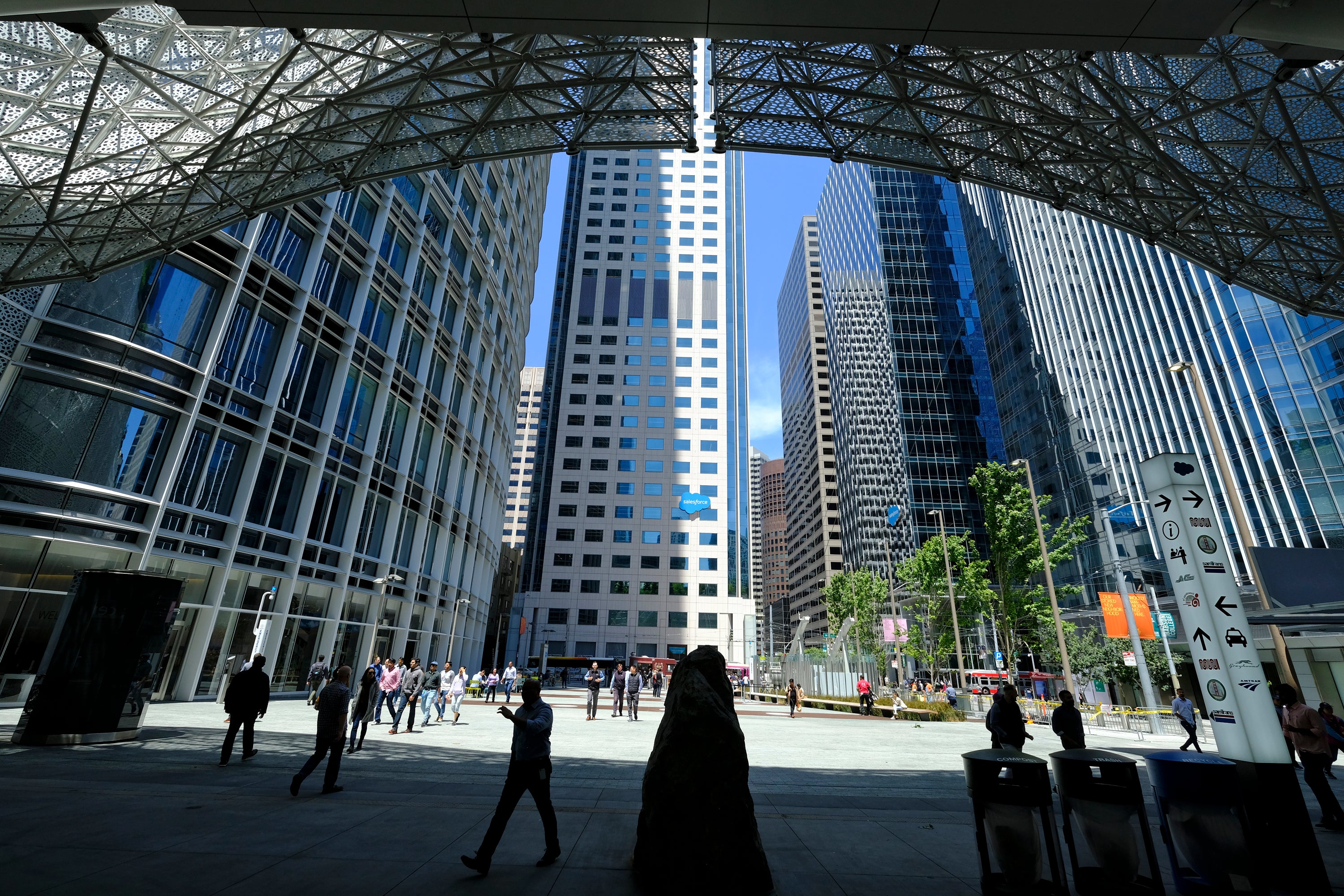Salesforce won't force workers to go into office post-COVID
San Francisco-based business software maker Salesforce says it will let most of its employees work remotely even after the pandemic, at least for part of the week

Your support helps us to tell the story
From reproductive rights to climate change to Big Tech, The Independent is on the ground when the story is developing. Whether it's investigating the financials of Elon Musk's pro-Trump PAC or producing our latest documentary, 'The A Word', which shines a light on the American women fighting for reproductive rights, we know how important it is to parse out the facts from the messaging.
At such a critical moment in US history, we need reporters on the ground. Your donation allows us to keep sending journalists to speak to both sides of the story.
The Independent is trusted by Americans across the entire political spectrum. And unlike many other quality news outlets, we choose not to lock Americans out of our reporting and analysis with paywalls. We believe quality journalism should be available to everyone, paid for by those who can afford it.
Your support makes all the difference.San Francisco-based business software maker Salesforce says it will let most of its employees work remotely even after the pandemic, at least for part of the week. Other major tech companies such as Twitter and Google have made similar announcements.
Salesforce, which is the city’s largest private employer, said Tuesday that it will let most of its employers work from home at least part-time permanently. This means people will be in the office anywhere from one to three days a week. Employees who don’t live near an office or have roles that don’t require an office will work remotely full-time, Salesforce said.
Some workers whose jobs require them to be in a physical office will continue to go in to work.
Salesforce said its work-from-anywhere plan offers the company better ways to broaden its workforce to new geographies and new communities beyond “traditional city centers."
“And creating more flexible schedules removes hurdles that may make it more difficult to be in the office daily — from picking up kids to caring for sick family members," the company said on its website.
Salesforce said it made the decision based on feedback from employees. While 80% of its workers surveyed wanted to have some connection to a physical office, nearly half said they wanted to go in only a few times a month.